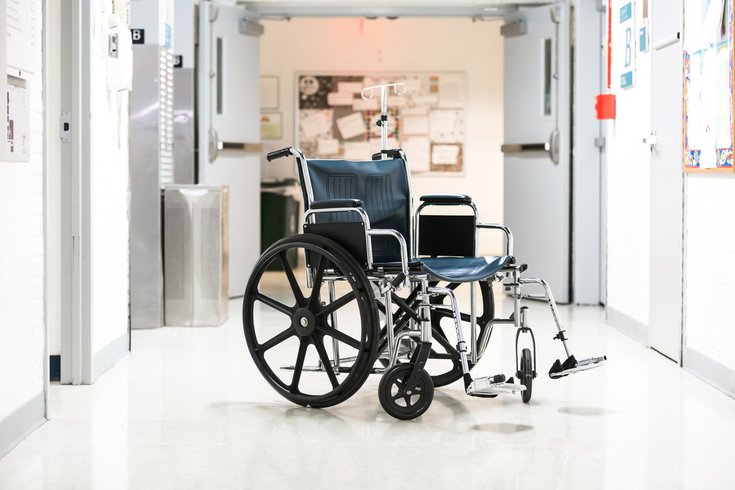
May 03, 2016
 Thom Carroll/PhillyVoice
Thom Carroll/PhillyVoice
There are certain health habits that can help prevent, or lessen, the development of joint pain as you grow older.
For years, public health experts have told us how to maintain a heart-healthy lifestyle, but the importance of keeping our joints in top shape has often taken a back seat. This may be because we naively think of bones as indestructible – and they’re not. In fact, arthritis is the No. 1 cause of disability in the United States, impacting more than 50 million people.
Now is the perfect time to give our joints some much-needed attention. While some causes of arthritis are out of our control, there are certain health habits that can help prevent, or lessen, the development of joint pain as you grow older. Here are five:
This is particularly important for your knees – the weight-bearing joints in which many people experience arthritis first. Being overweight or obese can be harmful to your knee joints, which have evolved to support a certain optimum body weight, but not necessarily more. Some doctors estimate that overweight or obese adults are up to four times as likely to experience arthritis in their knee joints as those in the normal weight range. In addition to all the other health benefits that come from having a healthy weight are pain-free knee joints – so use diet and exercise to lessen your chance of arthritic knees.
The tendency to become less active later in life is a recipe for osteoarthritis. Exercises like swimming, which takes the stress of weight off your joints for periods of time, are fantastic for warding off – or lessening the effects of – arthritis. Even more important, sensible, non-impact exercises like yoga help build up and strengthen the muscles that surround and support joints like knees and elbows. The healthy stretching that comes with such movement will increase both your range of motion and overall flexibility.
Injuries from sports, work or household accidents that result in trauma to a joint can often trigger arthritis. A nasty fall on your knee or elbow can result in an arthritic joint developing, perhaps years later. If you work in a physical job, make sure that your movements are correct – like lifting heavy items with your back, rather than with your knees. The strain from repetitive movement of joints, which physicians sometimes call “micro trauma,” can be particularly harmful. Even too many hours at the computer keyboard can trigger arthritis in your wrist (as well as carpal tunnel syndrome).
Remember, a big part of protecting joints from injuries is wearing protective equipment like knee and elbow pads on the tennis court or wrist-support wraps when typing for hours. Equally important is making sure that you have proper training before you take up a sport and that your “body mechanics” are correct.
Some studies have pointed to fish that are high in omega-3 fatty acids as beneficial in preventing arthritis. Sardines, mackerel, trout and salmon all fall into this category. Similarly, certain dietary supplements that provide vital nutrients have been linked to the health of joints, and some say they can delay the onset of arthritis. Vitamins C and D, glucosamine, chondroitin sulfate and calcium have all been cited.
Did you know that up to 70 percent of the cartilage in joints like knees and elbows is made up of water? The shock-absorbing and lubrication function of joints can be dramatically lessened by dehydration -- and some doctors have cited it as an under-recognized factor in joint pain. Hydration isn’t just good for your skin, it’s vital for your joints.
Taking care of your joints now can save you a lot of discomfort later in life! The more you can do to keep joints flexible, moving and un-injured, the less the swelling, pain and limited range of motion caused by arthritis will be an issue as you age.